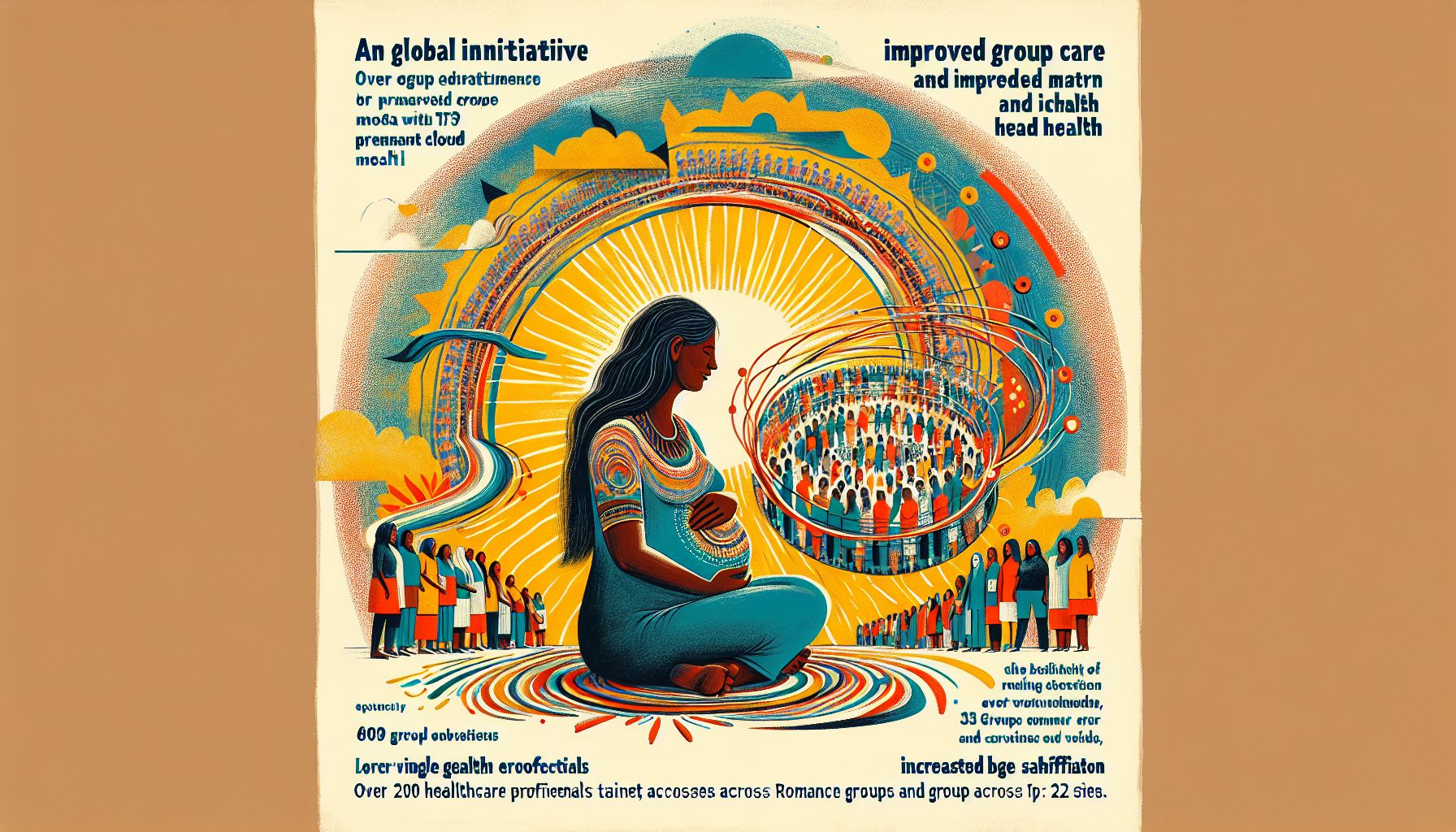Global Initiative Promotes Group Care for Improved Maternal and Child Health

The Hague, Tuesday, 9 July 2024.
TNO’s group care model, based on Centering, is gaining traction worldwide. Implemented in seven countries, it has trained over 200 healthcare professionals and established 169 groups across 32 sites, leading to better health outcomes and increased satisfaction among pregnant women and caregivers.
Introduction to Group Care
Group care during the first 1,000 days of a child’s life is an innovative approach promoted by TNO, a research organization based in the Netherlands. This initiative focuses on improving health outcomes and satisfaction among pregnant women and their caregivers. By implementing a model based on Centering, TNO aims to provide holistic and comprehensive care during this critical development period.
How Group Care Works
The group care model brings together small groups of pregnant women and parents to participate in regular, facilitated sessions led by trained healthcare providers. Each session covers essential topics such as nutrition, physical activity, mental health, and child development. The format encourages peer support, shared learning, and consistent care, which contrasts with the often fragmented and brief nature of traditional prenatal visits.
Global Implementation and Impact
TNO has successfully introduced group care in various countries, including Suriname, Ghana, South Africa, the United Kingdom, Belgium, the Netherlands, and Kosovo. Over 200 healthcare providers have been trained, and 169 groups have been established in 32 locations. The initiative has shown significant improvements in health outcomes and satisfaction among both pregnant women and healthcare providers. All participating countries have expressed their intention to continue offering group care beyond the project’s duration, indicating its perceived value and effectiveness.
Reducing Health Inequality
One of the notable benefits of the group care model is its ability to address health inequalities. By providing tailored care and support in vulnerable populations, including asylum seekers and communities with high health disparities, the model helps ensure that all mothers and children have access to quality healthcare. This approach aligns with TNO’s broader goal of reducing health inequalities and promoting social equity.
Future Prospects and Expansion
The success of the group care model in diverse settings has led to the development of an implementation package that includes supporting materials and recommendations for other countries to adopt. These resources are freely available, enabling wider dissemination and adoption of the model. TNO also continues to offer training sessions to expand the pool of qualified group care facilitators, aiming to further enhance the reach and impact of this innovative care approach.
Conclusion
TNO’s group care model represents a significant advancement in maternal and child healthcare. By fostering a supportive and collaborative environment, the model not only improves health outcomes but also enhances the overall experience for both patients and providers. As more countries adopt this approach, the potential for widespread, positive impact on global health becomes increasingly evident.

